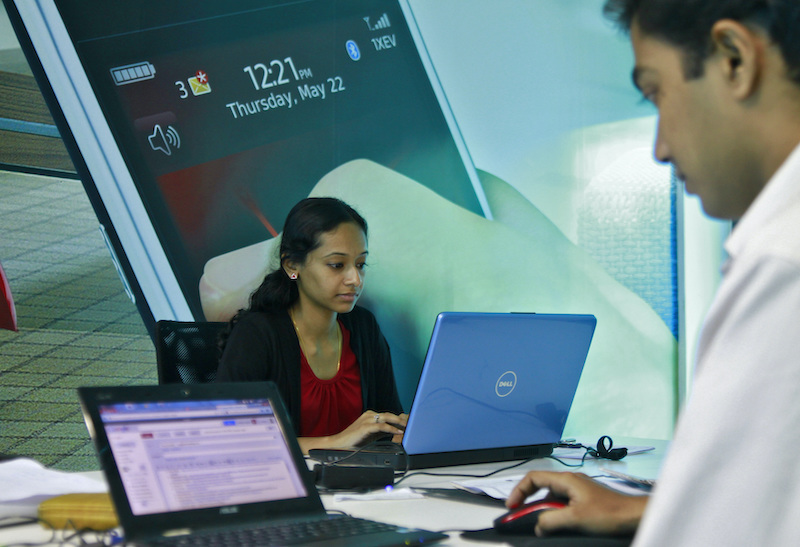The Indian government said on Thursday it will impose a licensing requirement for imports of laptops, tablets and personal computers.
The move, which will take effect immediately, could hit companies such as Apple, Dell and Samsung hard. Indeed, it appears aimed at forcing them to manufacture their products locally.
Current regulations in India allow companies to import laptops freely, but the new rule mandates a special licence for these products, similar to restrictions India imposed in 2020 for inbound TV shipments.
A source familiar with the matter said the decision was in compliance with the World Trade Organization’s requirements.
ALSO SEE: Foxconn EV Unit Keen to Make Small Cars in India, Thailand
Industry executives said a licensing regime would mean prolonged wait times for each new model they launch, and would come just ahead of a festive season in India when sales typically surge.
The government notification gave no reason for the move, but Prime Minister Narendra Modi’s government has been promoting local manufacturing and discouraging imports under his “Make in India” plan.
iPads and Dell laptops mostly imported
India’s electronics imports, which include laptops, tablets and personal computers, stood at $19.7 billion in the April to June period, up 6.25% year-on-year.
Laptops, tablets and personal computers account for about 1.5% of India’s total annual imports, with nearly half of those from China, according to government data.
Many of Apple’s iPads and Dell’s laptops are imported into the country, rather than being manufactured locally.
The intent seems to be “substitution of certain goods that are imported heavily”, Emkay Global economist Madhavi Arora, said.
Apple, Dell and Samsung did not immediately respond to requests for comment. They, along with Acer, LG Electronics, Lenovo and HP, are some of the key sellers of laptops in the Indian market.
The move is expected to benefit contract manufacturers like Dixon Technologies, whose shares rose more than 7% on the news.
“The move’s spirit is to push manufacturing to India. It’s not a nudge, it’s a push,” Ali Akhtar Jafri, former director general at electronics industry body MAIT, said.
Goal to be global economic production hub
India has been trying to push local manufacturing by giving production-linked incentives in over two dozen sectors, including electronics.
The Modi government has extended a deadline for companies to apply for a $2-billion incentive scheme to attract big-ticket investments in IT hardware manufacturing, which covers products like laptops, tablets, personal computers and servers.
The scheme is key to India’s ambitions to become a powerhouse in the global electronics supply chain, with the country targeting annual production worth $300 billion by 2026.
The country has imposed high tariffs in the past on products like mobile phones to catalyze domestic output.
Last year, it produced $38 billion worth mobile phones in the country, while local production of laptops and tablets were just $4 billion in comparison, according to estimates from industry body India Cellular and Electronics Association.
- Reuters with additional editing by Jim Pollard
NOTE: This report was updated and the headline changed on August 3, 2023.
ALSO SEE:
AMD to Build Massive $400 Million Chip Design Centre in India
India Sees Foxconn, Micron Helping it Rival Chip King Taiwan
India Turns Down BYD’s $1-Billion EV, Battery Plant Proposal
Amazon Cloud Unit to Spend $13 Billion in India by 2030
Apple Bets on India’s Middle Class in Hunt for Future Markets
























